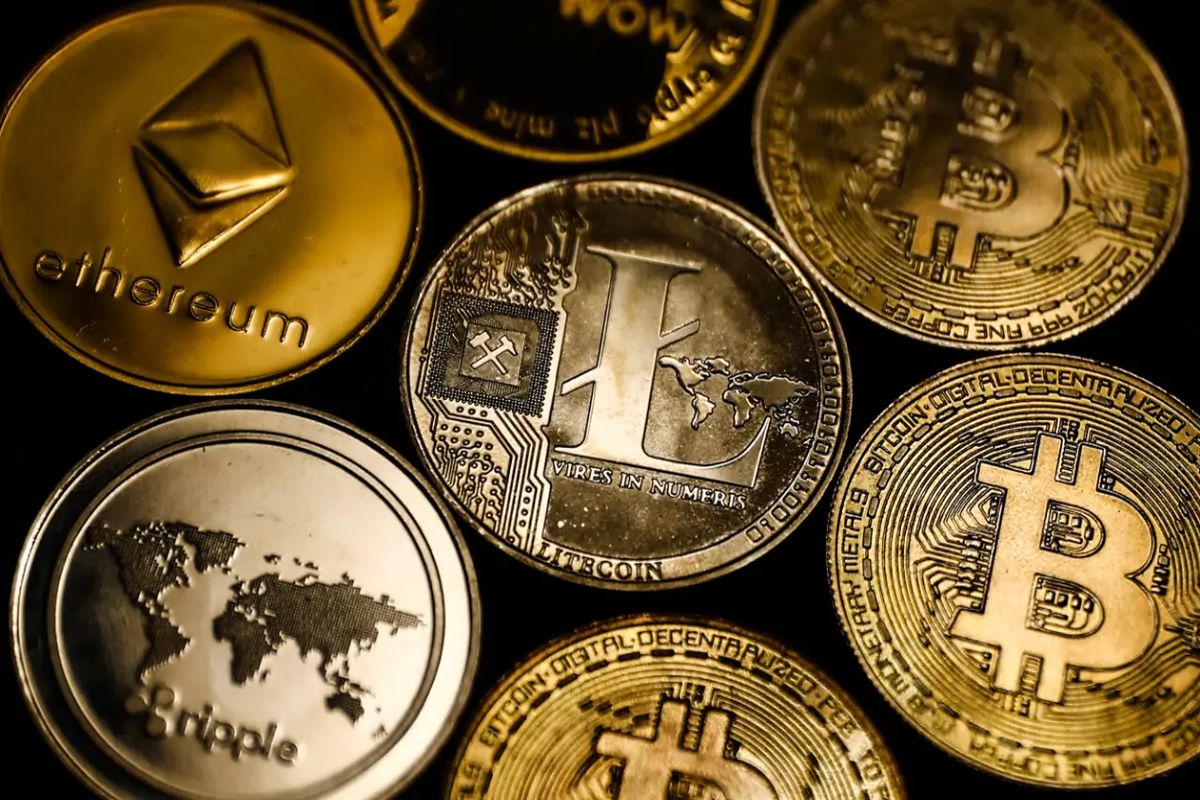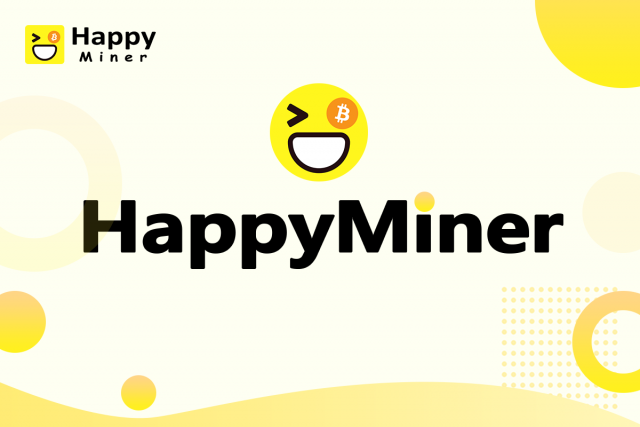Need to make money within a day or a few hours? Both online and offline, there are more opportunities than ever before to earn extra money. In 2023, you can use cryptocurrencies to earn money through Cloud mining, Affiliate program, and other ways.
Don’t let the reality that bitcoin combines computer science and money scare you. Getting started is easy, you don’t need to be an expert. You still can make a living online in 2023 with a little luck and careful investing. Despite the fact that many individuals use cryptocurrencies for payment purposes, they are more frequently discussed as investments.
What are the best ways to make money fast?
| Ways | Advantage | Rating |
| 1 – Cloud mining | Sign up and get $10, Free Investment, Daily payouts, 24-hour support. | ★★★★★ |
| 2 – Affiliate Program | Up to 4.5% referral reward. | ★★★★★ |
| 3 – Proof-of-Stake (PoS) Staking | replaces the role of mining in a proof-of-stake system. | ★★★★☆ |
| 4 – Interest-Bearing Digital Asset Accounts | Can earn interest on their bitcoin holdings. | ★★★★☆ |
| 5 – Dividend-Earning Tokens | investors can get cryptocurrency dividends that represent a share of a company’s earnings. | ★★★★☆ |
| 6 – Yield Farming | Present opportunities participation in decentralized finance. | ★★★☆☆ |
| 7 – Run a Lightning Node | Can provide faster and cheaper Bitcoin transactions. | ★★★☆☆ |
| 8 – Master Nodes | Operating a masternode can voting rights in network governance. | ★★★☆☆ |
| 9 – Forks and Airdrops | Participating in forks and airdrops can result in the receipt of free cryptocurrency tokens. | ★★★☆☆ |
| 10 – Sun Exchange | Provides access to clean and sustainable energy. | ★★★☆☆ |
| 11 – Crypto Games | Offer earn cryptocurrency rewards while playing games. | ★★★☆☆ |
| 12 – Learn to Earn | Providing individuals with access to education and resources. | ★★★☆☆ |
1 – Cloud Mining
HappyMiner, a real cloud mining company was founded in the US in 2018. HappyMiner offers commercial properties with a big tech park of specialised Bitcoin mining machinery, much like any respectable hash provider. Data centres are located in Norway, Canada, and Iceland. More than 2,800K individuals from over the world receive cryptocurrency payments from HappyMiner at this time.
Advantage:
- Get $10 after signing up.
- Automatic payouts each day.
- A daily purchase of the free package is possible.
- There are no overhead and electricity costs.
- A lifetime rewards affiliate programme with a 4.5% commission.
- A variety of Crypto contracts to select from.
- The system is protected by SSL and DDoS.
- Constant online assistance.
Packages:
| Contract Price | Contract Terms | Fixed Return | Daily Rate |
| $10 | 1 Day | $10+$0.8 | 8% |
| $100 | 3 Days | $100+$4.5 | 1.5% |
| $500 | 7 Days | $500+$63 | 1.8% |
| $1,200 | 15 Days | $1,200+$345 | 1.92% |
| $3,000 | 30 Days | $3,000+$1,890 | 2.1% |
| $6,400 | 60 Days | $6,400+$8,880 | 2.31% |
For more information about HappyMiner, please visit https://happyminer.us/
Social media links
2 – Affiliate Program: Refer friends to get huge rewards
A variety of Affiliate program allow you to earn money by directing users to a company’s website or software. A free membership in an affiliate network is available. After creating an account, you will be given a unique URL. You must share the URL with websites, blogs, forums, and social media platforms. You will be paid every time someone uses your link to sign up or make a purchase. The biggest benefit is the potential for fast financial gain. Money would also continue to trickle in for days, months, decades, and even years after the hard labour. If you already have a website or a large social media following, joining an Affiliate program is a great way to make money passively.
Even if you do not invest, you can begin earning money. You are eligible for a 4.5% referral bonus for each purchase made by one of your referrals.
To learn more about Affiliate Program, visit: https://happyminer.us/affiliate
3 – Proof-of-Stake (PoS) Staking
Proof-of-stake is a blockchain technology consensus method that is used as an alternative to Bitcoin’s proof-of-work. PoS networks reach an agreement on which transactions are valid through a process in which nodes lock up, or “stake,” large amounts of tokens for a period of time. In a proof-of-stake system, crypto staking replaces mining and is analogous to putting your assets in a locked savings account to earn interest.
Cosmos (ATOM), Tezos (XTZ), Solana (SOL), Ethereum (ETH), and Cardano are some popular cryptocurrencies that can be traded on major exchanges (ADA).
4 – Interest-Bearing Digital Asset Accounts
A number of service suppliers allow users to make payments their cryptocurrency and earn a return on it, just like they would with cash in a bank account. Simply create an account as well as deposit your encryption methods or stablecoins. You can find companies that offer these types of accounts by conducting an internet search.
Users accrue interest on cryptocurrency in exchange for their deposit. Interest rates on stablecoins such as US Dollar Coin (USDC) and Dai (DAI) are frequently the highest.
5 – Dividend-Earning Tokens
Cryptocurrencies backed by stock shares of a firm are known as tokenized stocks. These tokens occasionally offer dividend payments in a similar way to how stockholders receive dividends. Typically, dividends are handed out once every three months.
One further approach to use cryptocurrency for passive income is to own and hold some of these tokens.
6 – Yield Farming
One of the more complicated possibilities here is yield farming, which will necessitate extensive more study for those who are interested. Yet it can also be one of the most profitable ways to use cryptocurrency for passive income.
Investors fund yield farms by putting their tokens into a liquidity pool, a unique kind of smart contract. A part of the fees made by traders using the pool goes to those who supply liquidity in this fashion.
In order to farm yields, it is frequently necessary to have some Ethereum (ETH) and a DeFi token of some form, such as Uniswap (UNI) or Pancake Swap (CAKE), or even a stablecoin like Tether (USDT).
7 – Run a Lightning Node
A layer-2 scaling solution called the Bitcoin Lightning network enables scaleable, lightning-fast, inexpensive micropayments. These transactions are facilitated by lightning nodes, and people that manage nodes are paid a tiny percentage of the transaction fee for each transaction that passes through their node.
The majority of individuals that do operate Lightning nodes do so to promote Bitcoin as a form of payment. Additionally, as the Lightning network expands and more transactions are sent across it, node operators’ income may increase as a result.
8 – Master Nodes
Several blockchain networks, including DASH, have a particular class of node known as “master nodes.” Owners of these nodes stand to gain significant benefits because masternodes share in the block rewards each time a new block is mined.
However, the average person definitely won’t have the opportunity to run one of these nodes as doing so frequently necessitates owning a sizeable amount of the network’s cryptocurrency. For instance, as of September 2022, operating a DASH masternode costs 1,000 DASH, or around $40,000.
9 – Forks and Airdrops
An existing coin forks when it diverges into a new chain. New coins are manufactured and “dropped” onto users as a form of reward in an airdrop.
Users have no control over whether or when these occurrences might happen. But, your chances improve if you participate in the crypto economy.
In 2017, for example, everyone who had Bitcoin (BTC) received an equivalent value of Bitcoin Cash (BCH) when the system hard forked. For instance, a person who had 1 BTC would have gotten 1 BCH.
10 – Sun Exchange
An existing coin forks when it diverges into a chain. New coins are manufactured and “dropped” onto customers as a form of reward in an airdrop.
Users have no control over whether or when these occurrences might happen. But, your chances improve if you participate in the crypto economy.
In 2017, for instance, everyone who had Bitcoin (BTC) got an equivalent value of Bitcoin Cash (BCH) when the system hard forked. For instance, a person who had 1 BTC would have gotten 1 BCH.
11 – Crypto Games
As the popularity of online gaming spreads into the metaverse, so should the potential to make passive money from playing cryptogames. There are several crypto games available, and many of them offer rewards to players who use different kinds of crypto to participate.
Axie Infinity, The Sandbox, Gods Unchained, Ethermon, and Pegaxy are just a few of the many games available.
12 – Learn to Earn
Several platforms reward users with cryptocurrency for using the learning centre. It compensates users for learning about the platform by encouraging them to watch videos and complete quizzes. The users receive these coins at the end of the classes, and the content is frequently centred on particular altcoins. Users can exchange these alternative coins for other ones on the site, sell them for cash, or utilise the proceeds to purchase tokens for another prospective project since some of these coins might not be suitable for long-term investment.
This is Sponsored Content









